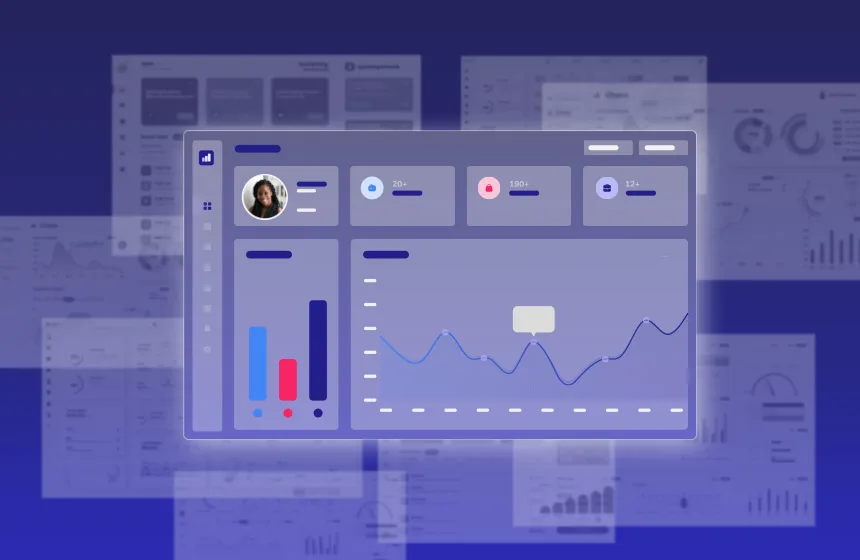3 Reasons You Need a Demo Engineer in Your Organization

April 21, 2025
Table of Contents
Slack has one. Atlassian and Twilio too. And Salesforce had one before anyone was talking about them. We’re watching the rise of a really exciting category called the demo engineer.
What is a demo engineer?
A demo engineer is an essential part of your presales organization. They work with your entire revenue team (sales, marketing, and product marketing) to create tailored, compelling demos that can be used across the sales cycle and customer journey.
Demo engineers aren’t in a customer-facing role—but they enable everyone who touches the customer or prospect to deliver the demo materials with ease and efficiency.
3 reasons why you should create a demo engineering team
As demand for demos has exploded, so has the need for the demo engineering team. Here are three reasons you should seriously consider creating a demo engineering team or expanding your existing one in 2023 and beyond.
1. Product-led growth is how buyers want to buy
Let’s be realistic—B2B buyers are not going to move away from wanting to see and experience your product before they buy it. Many even want to experience it before beginning a free trial or signing up for your freemium plan to see if the install and integrations are worth the hassle.
That’s why product-led growth continues to explode. Buyers often want a product experience before they ever talk to a sales rep now, so they’re certainly not going to sit through a classic discovery call to get one. With the SaaS space more competitive than ever, they’re simply going to find another solution that doesn’t put up those hoops.
And since PLG isn’t going away, neither is the increased demand for demos. Even with the rise of demo software that makes building demos much faster and more scalable, someone still needs to create demos for all your buyer personas and use cases.
That person could be an SE, but they’re hard to find and even harder to retain. Instead, consider hiring a demo engineer to do the demo creation work for your SEs. Let SEs focus on where their expertise shines brightest—translating those technical specs for prospects into real business solutions—while your demo engineers whip up great demos for:
- Marketing: enabling buyers to self-educate earlier in the buying process
- Sales: winning more deals faster with better product storytelling
- Customer Success: drive adoption with guided tours that show customers how to get the most out of your product.
- Learning and development: Get new hires ramped up and ready to hit the frontlines in less time.
- And more!
2. Product demos aren’t just a tool for sales meetings anymore
Your sales reps aren’t the only ones who need product demos anymore. Buyers are impatient—they want to get at least a short tour of your product when they visit your website to conduct their early-stage research. Your product marketers and marketing team also need access to materials so they can make those fast-moving buyers happy.
Demo engineers ensure that everyone in your revenue org has access to the high-quality demos they need, when they need them. SEs are focused on those sales meetings, which are critical, but demo engineers can help across the organization, so your website sells your product effectively as well.
With people in many different roles potentially creating demos, ensuring they all have narrative consistency, branding, and accurate technical details is also increasingly critical. When your demo engineering team owns all the demos across all the functions, they can ensure this consistency and make each demo part of a larger whole, increasing the effectiveness of your demos. And this is true whether you build your own in-house demo environment or buy a demo creation platform.
3. Your pool of future SEs won’t grow on its own
We don’t need to tell you it’s tough to find SEs these days, and it’s no wonder: they’re basically purple squirrels. Finding a roster of people with deep technical knowledge combined with a talent for sales? Whew. Good luck out there, recruiters.
But building a demo engineering team can help you solve this problem. Demo engineers are technical experts who’ll gain even more knowledge about your tech stack as they create more demos, so they’re a great stepping stone on the way to an SE role. They can play a key role in your sales enablement today while preparing a deep bench of SEs for the future.
More resources about the demo engineer role
We’ve written and talked quite a lot about the rise of the demo engineer, so if you’re curious about how this role is growing and evolving, here are some additional resources:
- Don’t miss this episode of the Demo Diaries podcast from last year, where Jorge Soto talks to Haley Cen, Demo Engineering Lead at Amplitude.





